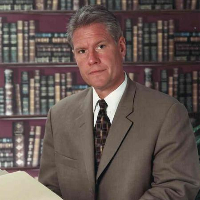Clare Juvenile Law Lawyer, Illinois
Patricia Magaña
Criminal, Juvenile Law, Traffic, DUI-DWI, Felony
Attorney Magaña has extensive experience in criminal defense, including traffic, misdemeanor, and felony offenses. Additionally, she represents indiv... (more)
Brett A. Appelman
Criminal, Felony, DUI-DWI, Juvenile Law
Naperville, IL Criminal Defense Attorney
In 2007, Brett Appelman established Appelman Law LLC with the mission of safeguarding and advocating for the rights of individuals accused of crimes. ... (more)
Philip R. Nathe
Criminal, DUI-DWI, Juvenile Law, Felony, Misdemeanor
DuPage County Criminal Defense Attorney
After starting his career in the criminal courts of DuPage County as a clerk more than 30 years ago, Philip Nathe went on to become an accomplished at... (more)
FREE CONSULTATION
CONTACTDaniel Patrick Mark
Juvenile Law, Real Estate, Motor Vehicle, Lawsuit & Dispute
Status: In Good Standing Licensed: 9 Years
Joseph Vito Pumilia
Juvenile Law, Criminal, Corporate, Accident & Injury
Status: In Good Standing Licensed: 13 Years
Austin Scott Davies
Domestic Violence & Neglect, Juvenile Law, Criminal
Status: In Good Standing Licensed: 8 Years





